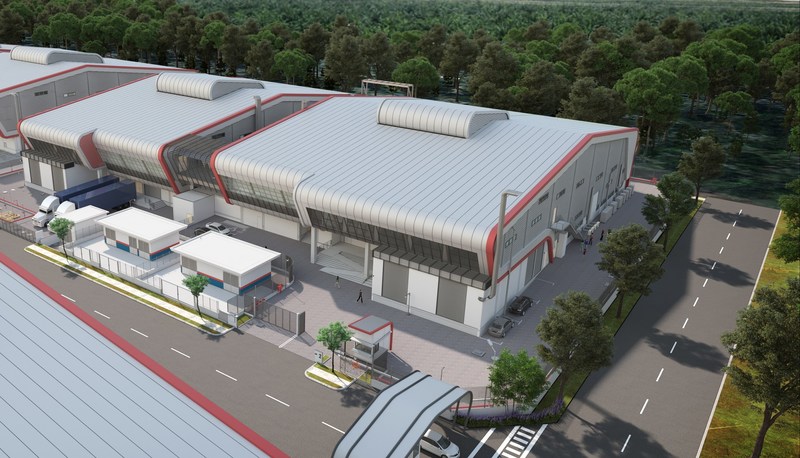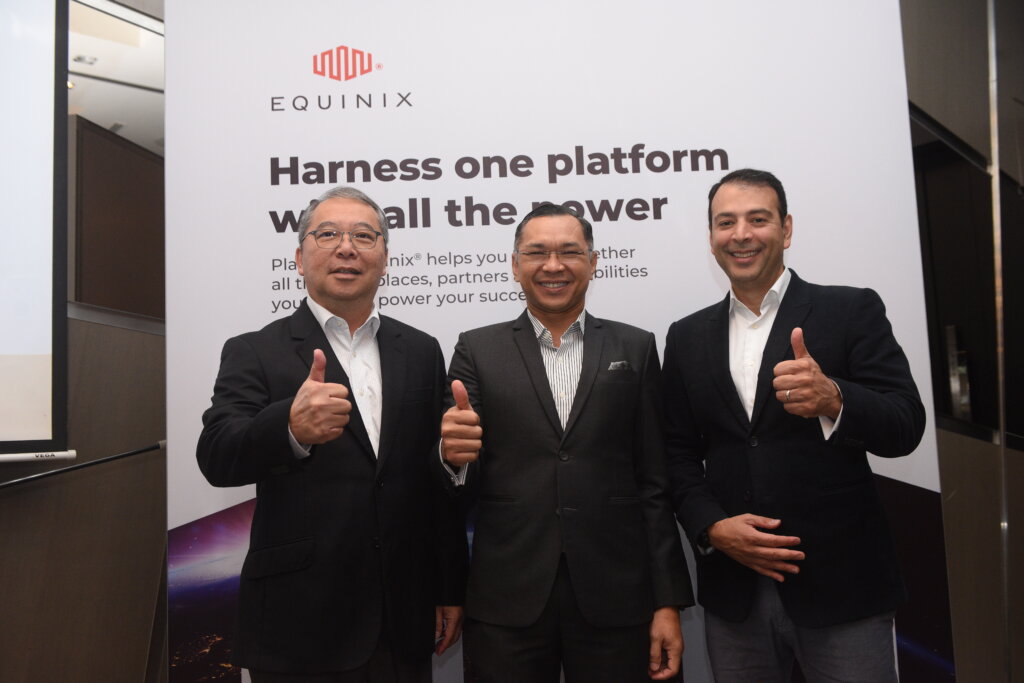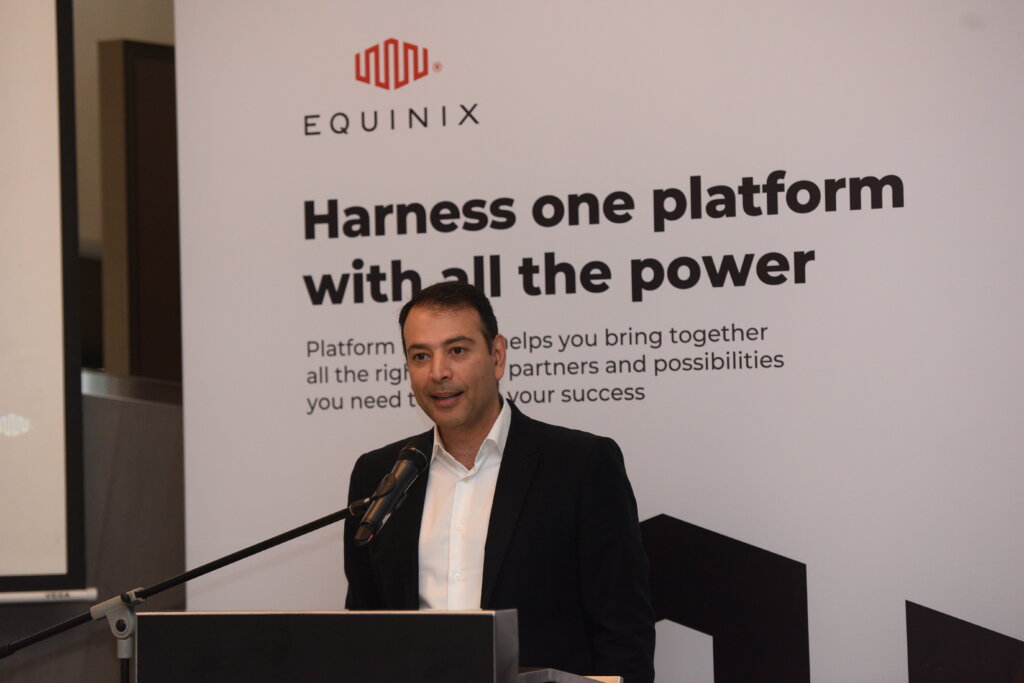
Rendering of Equinix JH1 International Business Exchange (IBX) in Johor, Malaysia.
Skills shortage not an obstacle for Equinix to commence data center operations in Malaysia
- Equinix on target to begin operations on its first and second data center in Malaysia.
- Equinix has so far invested about US$140 million on data centers in Malaysia.
- MDEC CEO believes Malaysia will have sufficient talent to support the skills needed in data centers.
When it comes to data center investments, Malaysia has enjoyed some of the biggest growth in recent years, with the past two years alone seeing more than a dozen new data centers announced, with billions of dollars worth of investments recorded at the same time.
One of the biggest data center investments in the country was made by Equinix in 2022. The data center giant announced its market entry into Malaysia with plans to build a new International Business Exchange (IBX) data center located in Johor, called JH1. With an initial investment of around US$40 million, JH1 is scheduled to begin operations in Q1 2024, providing 500 cabinets and 1,960 square meters of colocation space.
Then, in June this year, Equinix announced plans to increase its footprint in Malaysia by opening another data center, this time worth US$100 million, in Kuala Lumpur. Also expected to be operational in Q1 2024, the new facility in Kuala Lumpur, named KL1, together with JH1 in Johor, will provide the digital infrastructure that businesses need to capitalize on the country’s digital economy. Both data centers are built with a key focus on sustainability, to add some future-proofing in the light of advancing compute needs and costs in terms of both economy and ecology.
Given the entry into the Malaysian market and with operations expected to start in 2024, Equinix has also begun the process of sourcing talent to work in these data centers once they are ready.
“Equinix is well-positioned to support Malaysia’s vision of becoming a digital nation. I look forward to working with the team to expand our footprint in Malaysia and helping our customers capitalize on the opportunities presented by the digital economy,” stated Cheam Tat Inn, who was recently appointed as managing director for Equinix Malaysia.

Cheam Tat Inn, Equinix’s managing director in Malaysia; Ts. Mahadhir Aziz, CEO of MDEC; and Cyrus Adaggra, VP of corporate development, Equinix APAC, at the Equinix media roundtable held today in Kuala Lumpur.
Catering to regional customers
At a media briefing, Cyrus Adaggra, vice president, corporate development for Equinix Asia-Pacific also said there are plans to expand the capabilities of the data center in Johor in the future. This includes building another facility to support the growing needs of customers.
While the Johor data center could support the demands of Singaporean customers as well, Adaggra mentioned that the key focus for both data centers will be on Malaysian businesses, with the telco, service providers and enterprises as the key target customers. Having said that, Adaggra also highlighted that the data center is only a fraction of the company’s Singapore facility.
“While the Johor data center can support customers who want to deploy in Singapore and Malaysia, it will be complimentary to the Singapore data center. It may have more compute power in the future, but it won’t replace the Singapore data center and will always be a complimentary,” Adaggra explained.
When asked about the recent outage of Equinix data center in Singapore, Adaggra said the company is learning from the incident in Singapore to ensure it doesn’t happen again. He added that the operations team is industry-leading and is currently working on post-implementation reviews to ensure such an incident doesn’t occur again.

Ts. Mahadhir Aziz, CEO of MDEC, highlighting Malaysia’s determination to accelerate digitalization during the Equinix media roundtable.
Addressing the skills shortage in the data center industry
With more data centers mushrooming in the country, there is now a concern about whether there is a sufficient workforce available to fill up the new roles in these facilities. Globally, there is a big shortage of talent in the tech industry, with data center talent among those most in demand.
According to Ts. Mahadhir Aziz, CEO of MDEC, the development of skills in Malaysia is based on the talent requirement. However, investors will also look at the talent available before making any investments in the country.
“We believe we have adequate talent to support this. A lot of investors have mentioned that we don’t have sufficient talent. So we ask them how we can work together to deal with this,” said Aziz.
Some of the initiatives taken by MDEC and the government include creating programs directly with universities and corporations so that the right skills can be developed and the talents absorbed into employment.
Aziz also mentioned that knowledge workers do come in and train future operating teams, especially for newly established businesses and infrastructures in the country. For this, MDEC will also facilitate the immediate requirements.
Meanwhile, Adaggra stated the skills and talent shortage are not roadblocks for Equinix. He believes Malaysia will be able to fill the gaps in the future.
At the same time, Aziz also highlighted that with more data centers coming into the country, there is also the need to see how these investments will impact society. This includes focusing on creating more solutions locally as a launchpad to other markets.
READ MORE
- Data Strategies That Dictate Legacy Overhaul Methods for Established Banks
- Securing Data: A Guide to Navigating Australian Privacy Regulations
- Ethical Threads: Transforming Fashion with Trust and Transparency
- Top 5 Drivers Shaping IT Budgets This Financial Year
- Beyond Connectivity: How Wireless Site Surveys Enhance Tomorrow’s Business Network




